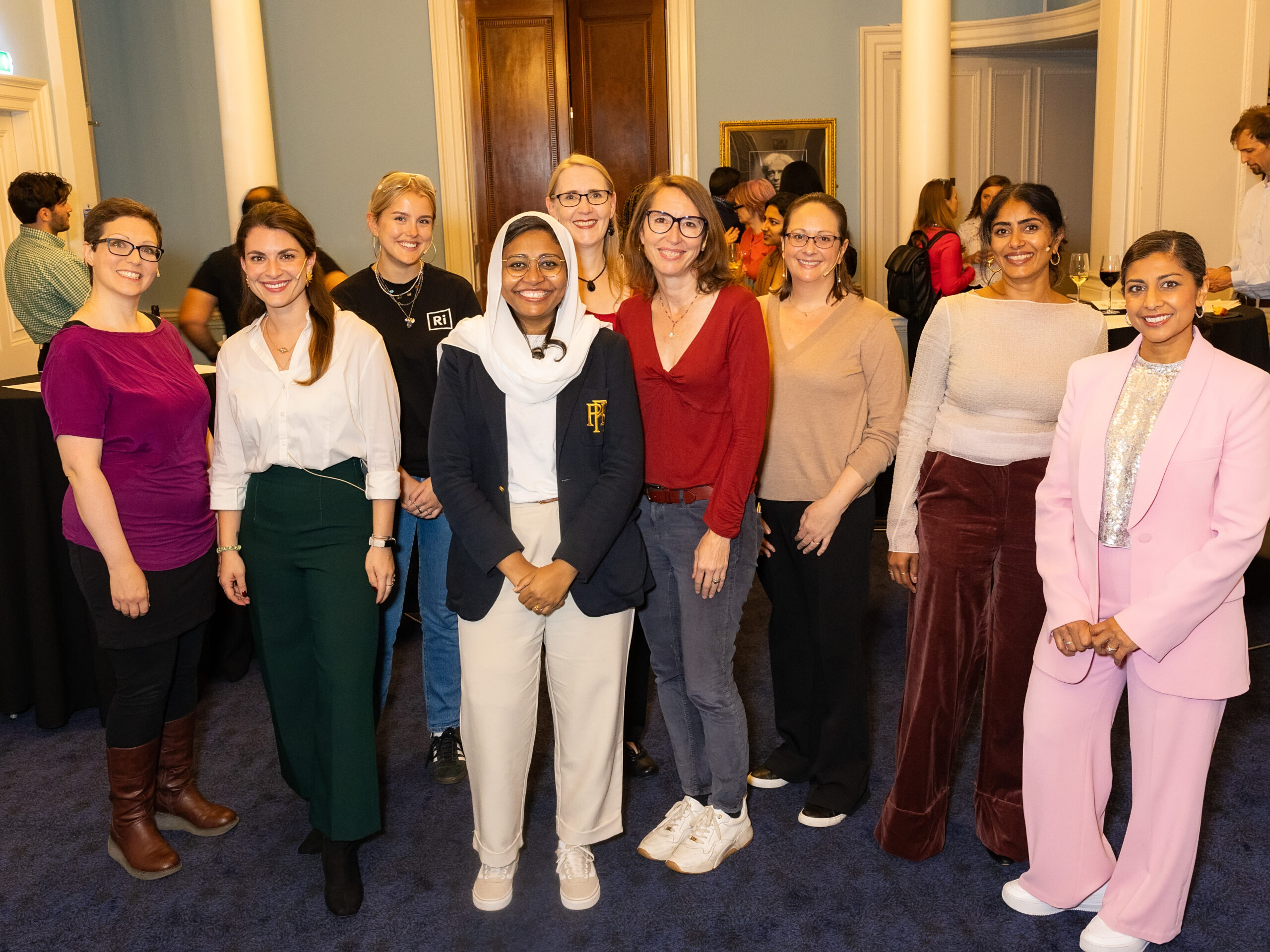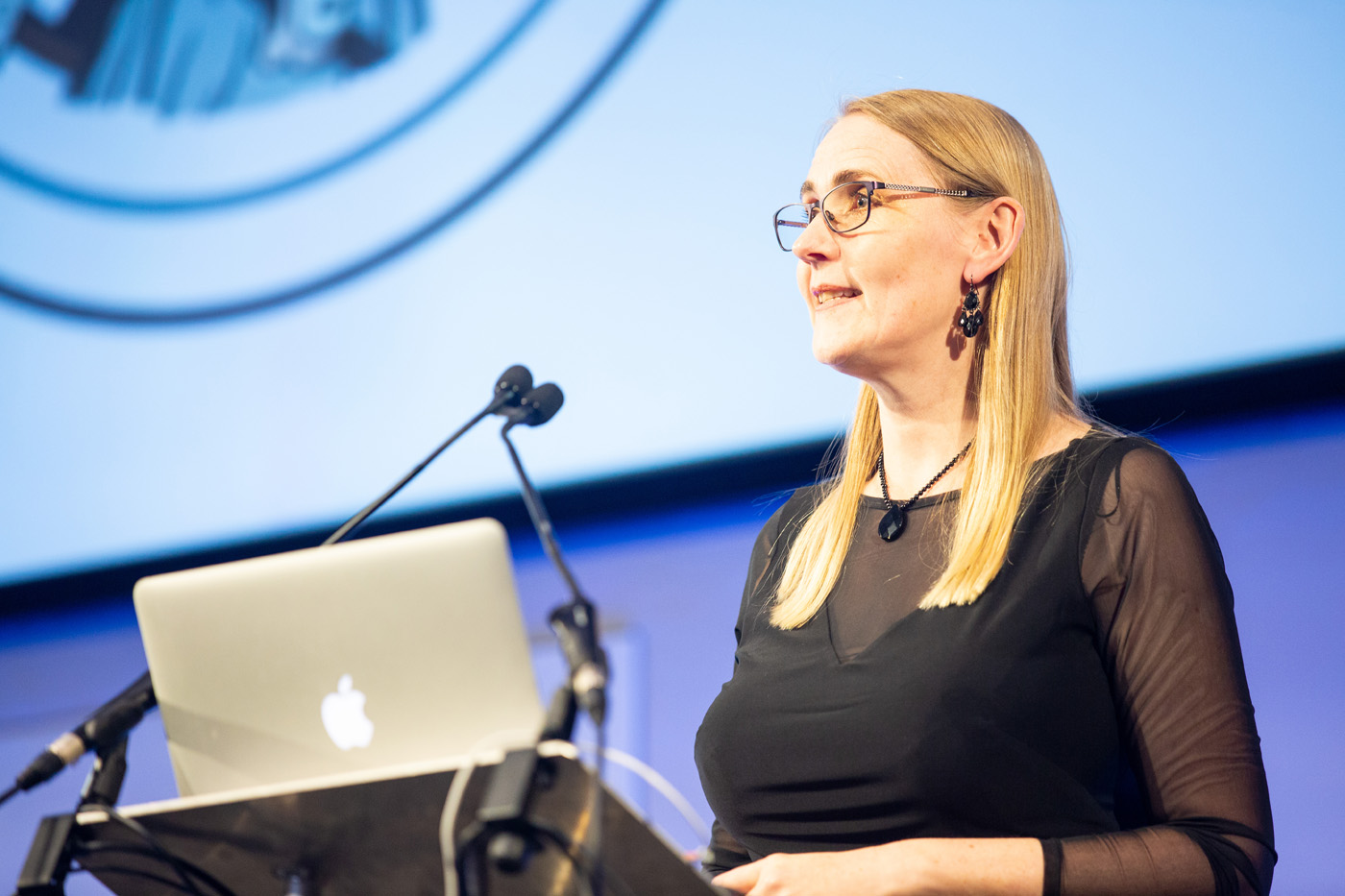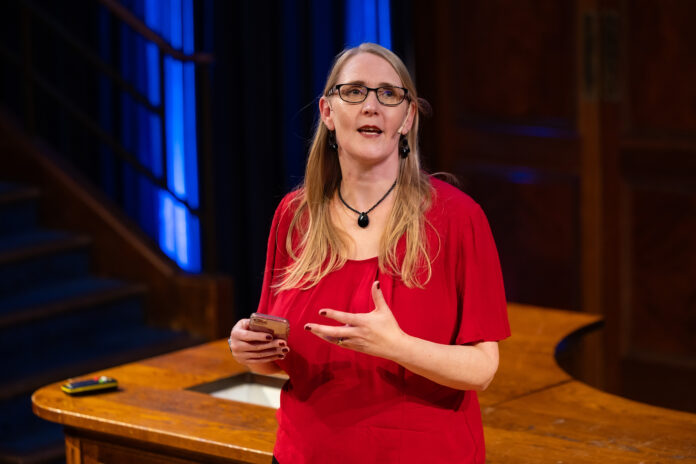Ada Lovelace Day – named after the pioneering mathematician – is the brainchild of tech consultant Suw Charman-Anderson, to give a speaking platform to women in science, technology, engineering and maths (STEM).
But in recent years, Suw has become concerned that companies are starting to turn away from organisations with a diversity, equity and inclusion (DEI) mission, especially when it comes to women.
Here, she shares the journey of Ada Lovelace Day, why she thinks DEI has fallen out of fashion and why events and organisations championing women in STEM are so crucial to the current and future workforce and economy.
‘It hit the zeitgeist’
It all began when Suw, who worked on blog and social tech before they hit the mainstream, began to realise that the industry conferences she attended didn’t include many women – certainly not on the stage.

“It was immediately obvious how few women were on stage,” she said. “And I remember one conference where I was the only woman in the room. I knew loads of women in tech but they just weren’t making it onto stage.”
“We call out conference organisers and they come out with the most ridiculous excuses, like ‘we asked women and they said no’. One even told me there aren’t any women in STEM. Ada Lovelace Day started as a celebration of women in tech so people couldn’t say we didn’t exist. Then we branched out to women in STEM.”
She now runs a women in STEM event every year with a whole host of women speakers, and the next Ada Lovelace Day Live will be held at the Royal Institution on 8 October.
It all started on March 2009, when Suw pledged to write a post about a woman in tech if 1,000 other people did too. In the end, 4,000 people signed up.
“I ended up on BBC News and the newspapers went for it and it became a massive thing. It had its own momentum from the beginning. It hit the zeitgeist. So this will be our 16th Ada Lovelace Day.”

The first event happened in 2011, and by 2015 people were putting on their own events all around the world.
A pull back from DEI
But in recent years it’s been difficult finding companies to sponsor Ada Lovelace Day – despite the positive impact it’s had on women in the STEM industries.
After a challenging time for the economy following the Brexit referendum, Suw said things built back up again by 2019, and then, of course, the pandemic happened.
A mentoring programme started in March 2020 as another string to the Ada Lovelace Day bow, but although it was successful, coronavirus and subsequent lockdowns meant that businesses put mentoring on the back burner.. She also started an online conference, which ran in 2020 and 2021 and moved Ada Lovelace Day itself online until 2023, when it returned as an in-person event.
And since then, Suw has noticed what she calls a ‘pulling back’ by companies on DEI.
“There’s reports by Bloomberg saying DEI is a fad and it’s over and companies in the States are pulling back from DEI.”
There was recently the move by US Tractor Supply Co to roll back its DEI commitments after pressure from some of its customer base. There’s also the fact there’s more DEI issues to tackle and shrinking funding pots.
“What you’re seeing is a hopscotch effect, each area of DEI is a lilypad and it’s like ‘we’ll land on this one, give you some money for a bit and then we’ll land on another one’,” Suw said. “You have a shrinking pot of money with more and more areas of diversity to be funded. The pie has gotten smaller and the number of forks has gotten bigger.”
‘It’s backsliding’
Suw said this turning away from DEI has led to many women in tech and STEM groups closing their doors, and is calling on firms to make a commitment to supporting the women in their workforce.

“There’s still a huge need for organisations and events supporting women in STEM. From the Tech Talent Charter, their diversity report earlier in the year, you can see that some of the progress that’s been made is now backsliding.”
The report found that 29% of tech workers are women or non-binary, and only 21% of senior tech roles are held women – down 1% from the year before.
“Let’s face it, a lot of decision-makers are men,” she said. “What is it that would make them care? There’s insufficient commitment to genuine change because the people who are in charge are the people who would lose out from it.”
Why DEI is still important
Suw said it’s clear from research by McKinsey and others, that companies with more women in senior positions make more money.
“Diverse teams are better at producing solutions to problems, and you have better product design with a diverse team,” Suw said. “The evidence is there but there seems to be this willful dismissal in favour of the status quo. It’s deeply frustrating.”

Suw said: “We have stats that women leave STEM at a far higher rate than men, and when you look at the reasons they’re all tractable problems. Work-life balance, not having access to promotions and training, and feeling they’re not being listened to or valued. None of that is hard to fix. All it takes is a bit of political will and emotional investment.
“So many companies focus on graduate recruitment, which is important, but if you’re not attractive to mid-career women then you’re not going to have mid-career talent to promote into senior positions. Women aren’t just leaving their jobs, they’re leaving STEM full stop. They’re moving into industries that are more welcoming. Where they are treated better and have more opportunities. No one seems to care about this loss of women in STEM.”
The cost of women leaving STEM
But losing mid-career women is costly.
“ACAS found that the full cost to the business of replacing a member of staff is £30,000,” Suw said. “A lot of that is loss of productivity as the new hire gets up to speed. Every woman who leaves unnecessarily because they don’t feel heard is costing you money.
“There’s also the issue around building your bench of talent. Every time you lose a mid-career woman you’re losing all their institutional knowledge. For women especially, because they come with a certain set of life experiences. If you don’t have women in mid 40s onwards in mid and senior roles you’re losing a whole load of experience to draw on. This is so important, especially in tech.”
The future workforce
And, of course, bringing in more graduates is also important, to help close the skills gap in STEM industries.
“We don’t have enough people in tech in this country to fill the roles – men cannot fill all of those roles by themselves,” Suw said. “We need to have more women engaging in tech, engineering, and STEM across the board if we’re going to reach our economic potential.
“Women are the powerhouse of the economy. Women are the untapped reserves that we need to bring into our STEM industries to ensure they grow, become more productive and bring more to the economy.”

The power of women in STEM groups
But how do organisations like Ada Lovelace Day help solve the problem?
“Women will be leaving if they cannot fit their work into their lives in a meaningful way, if they do not feel appreciated, if they do not feel seen and heard,” said Suw. “One of the ways to do that really publicly is to support organisations like Ada Lovelace Day. For a company to stand up and say we value you, we are supporting this organisation because we believe you have inherent value. To ensure that women are seen and heard and appreciated and celebrated.
“I do genuinely believe that Ada Lovelace Day is valuable. I know it has an impact, I know of women whose entire careers have changed because of Ada Lovelace Day, girls who have been inspired to study science because of Ada Lovelace Day.”
But Suw warned: “There comes a point where if people aren’t willing to pay for initiatives like Ada Lovelace Day, they’re going to go away.”
Ada Lovelace Day takes place on Tuesday, October 8 2024. To find out more, visit: findingada.com
